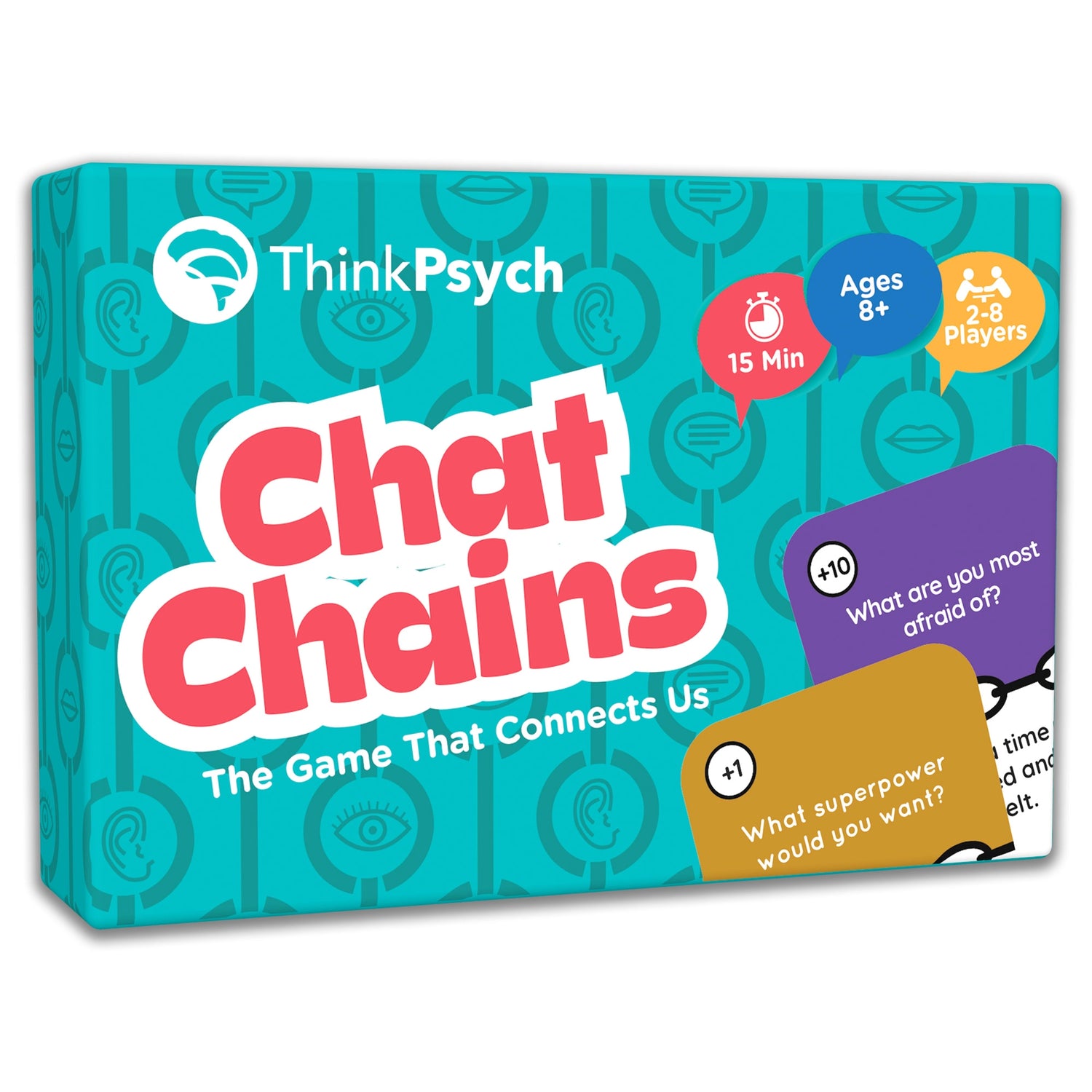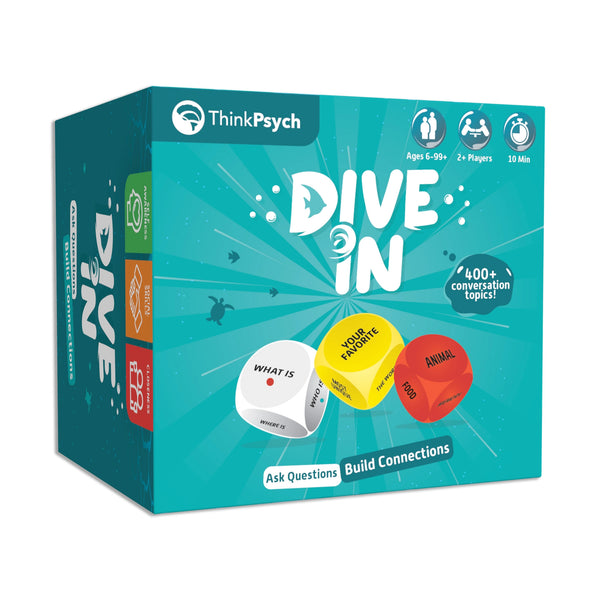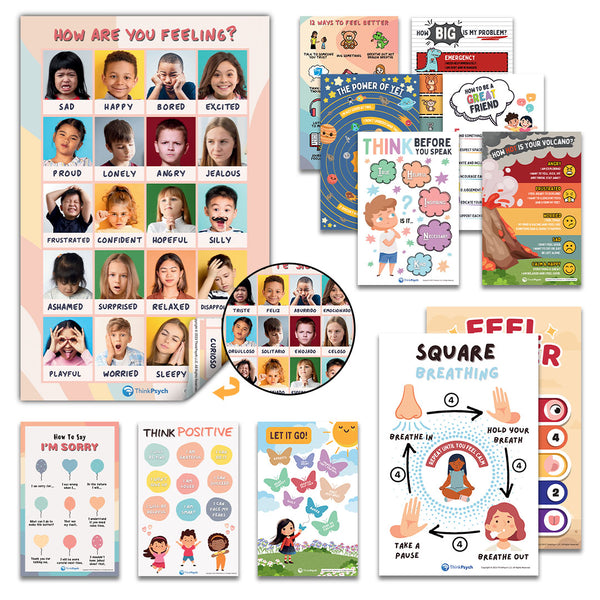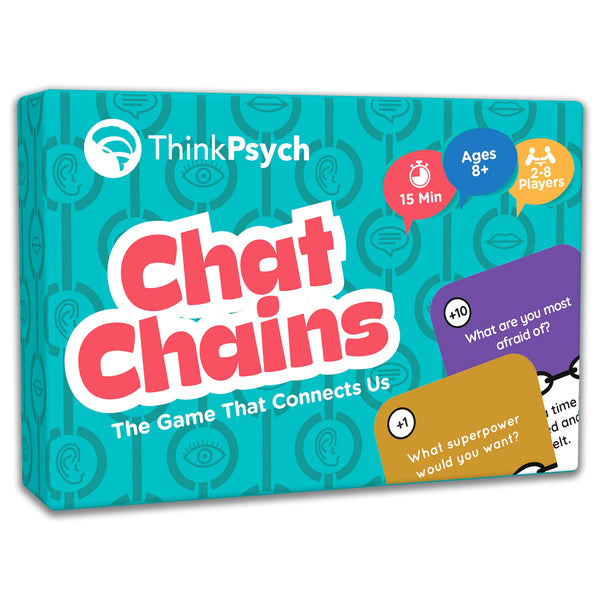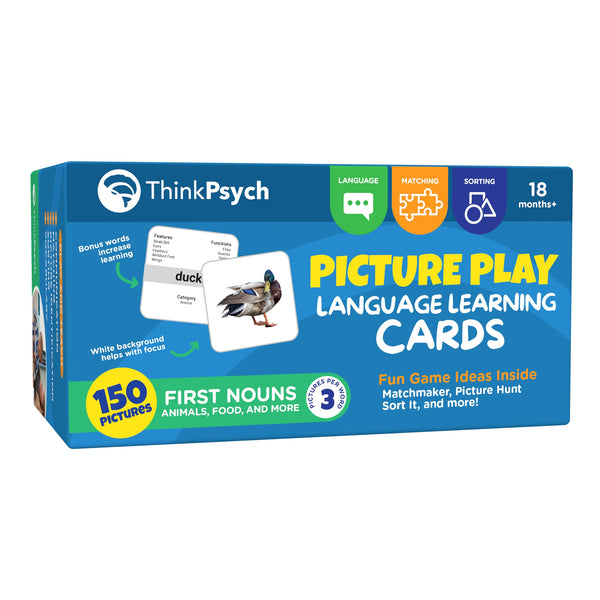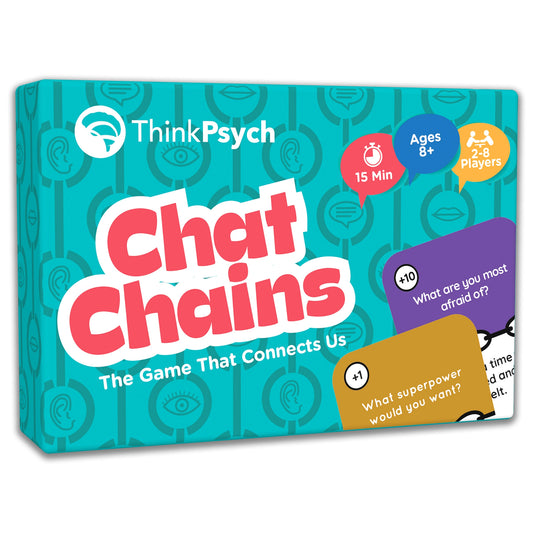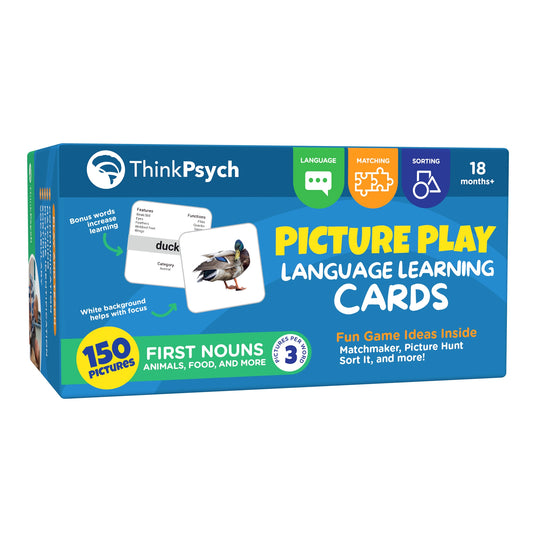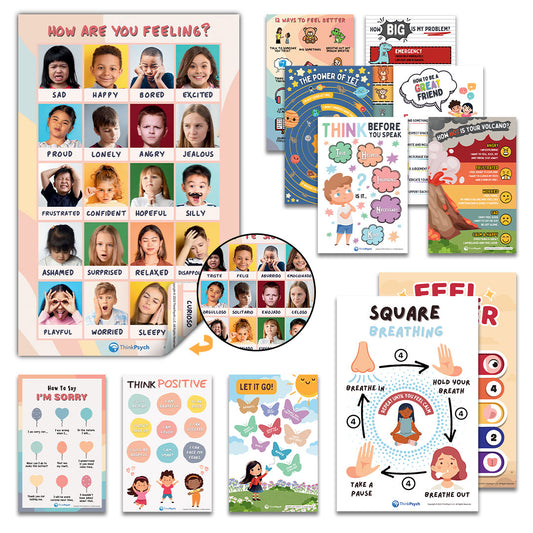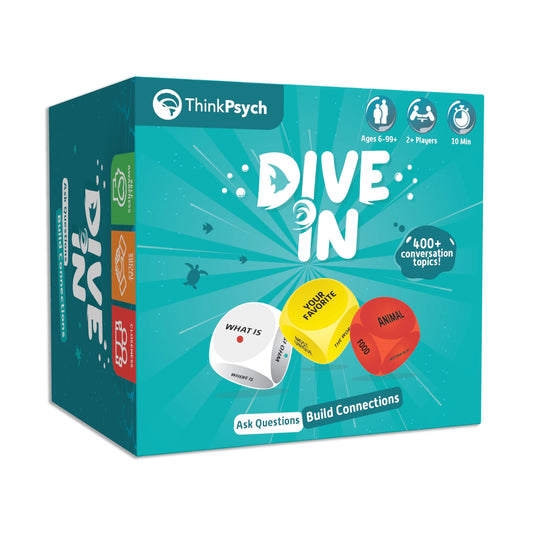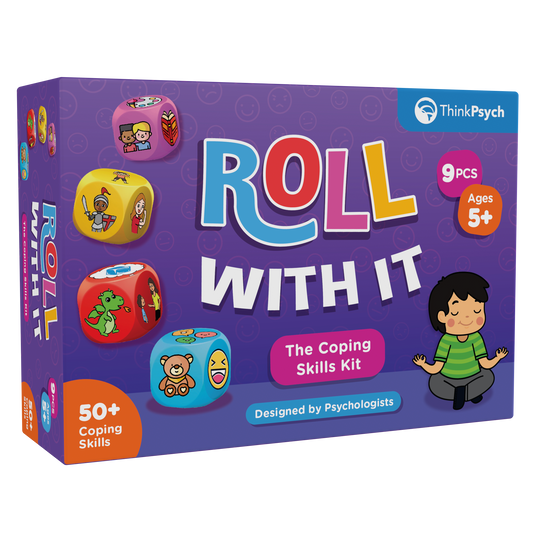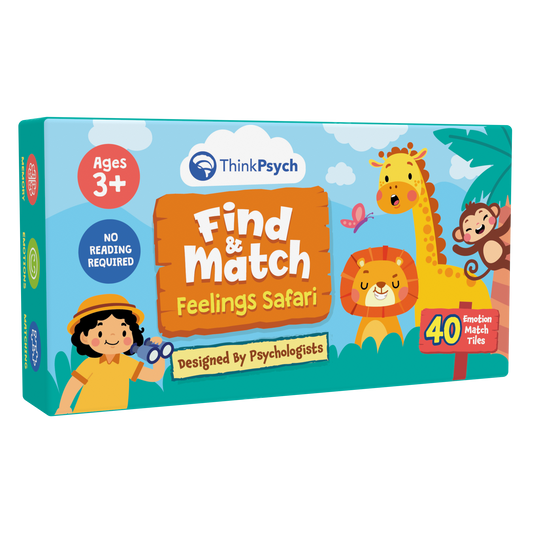
My Kid Doesn't Listen, Now What? (Tips for Listening Skills)
Share
Parents often feel like broken records when talking to their kids. It can be frustrating when you need to repeat yourself constantly because your kid just doesn’t seem to listen. Listening skills are the building blocks of language, learning and relationships. If you notice your child isn’t listening well, it’s important to work specifically on improving their abilities.
That said, listening isn’t something we learn overnight. To help you out, our experts at ThinkPsych have put together key tips to help boost your child’s listening skills in the long term.
Why listening is a critical skill
Listening is fundamental to so much of our everyday lives – whether you’re telling your kid something important (“Dinner’s ready!”), asking them to complete chores (“Did you brush your teeth?”) or simply discussing their day (“How was school?”).
In particular, active listening is the heart of good communication and relationship building. Active listening involves giving the speaker your full attention and retaining the message being conveyed.
Typically, great active listening skills lead to:
- Better communication skills
- Improved classroom learning outcomes, especially reading
- Boosted independence and resourcefulness
- Stronger friendships and relationships
In turn, kids who become active listeners often have higher emotional intelligence, which unlocks a wide range of social and learning benefits.
Key traits of active listening skills
Active listening isn’t just about paying attention. When kids actively listen, they’re able to retain new information and empathize with the speaker.
Often active listening becomes a cycle of learning. Kids who listen well tend to remember content and ask questions. Some key traits of active listening include:
- Eye contact
- Non-verbal cues, such as nodding, smiling, etc.
- Acknowledging speaker
- Not interrupting
- Asking questions
- Picking up on emotional cues
- Ability to repeat back information
Of course, your child’s capacity to listen also depends on their stage of development. As a general rule of thumb, kids can listen attentively for one minute per every year of their age. For example, a five-year-old will typically be able to listen actively for five minutes, while a ten-year-old can go for about 10 minutes.
Tips to boost your kid’s listening skills
Sharpening your kid’s listening skills may take time and patience. Yet, you don’t need much to develop listening skills with your child every day. Here are our favorite tips and creative activities to incorporate on a regular basis.
1. Stop the negative cycle of poor listening
To start, it’s essential to stop the negative cycle. When your kid doesn’t listen well, you may get frustrated and raise your voice. In turn, your child may ignore you or seek negative attention.
Stop poor listening in its tracks by focusing on listening-friendly activities and giving positive reinforcement. For example, you can try some of our top listening games below!
2. Break down instructions and information
In addition, consider how you’re communicating with your child. If you’re giving long instructions or lots of information, your kid may struggle to understand what you’re saying.
Instead, break down instructions and information into bite-sized pieces. This way, you can maximize your kid’s listening and make it easier to develop their skills.
Shop ThinkPsych Products
3. Model good listening skills with your child
Check your own habits in front of your kids. If you’re listening distractedly and/or interrupting, your kid will take notice.
Be sure you’re modeling good listening by using your kid’s name, responding with care, asking questions, etc. In particular, make sure your eyes aren’t glued to a screen when you’re talking with your child. If you give your kid your full attention, they’ll be more likely to learn how to do the same.
4. Focus on audio-related activities
Aural attention is best developed by lots of audio-related activities, including songs, environmental sounds, stories, etc. Some great ways to improve listening include:
- Singing songs
- Engaging with music (such as musical chairs, freeze dance, etc.)
- Learning rhymes and alliterations
- Playing listening games (such as “Simon Says,” telephone, etc.)
- Role-playing scenes or putting on plays
- Paying attention to ambient sounds (such as a “sound scavenger hunt,” etc.)
It’s important to try a range of different listening activities, so that your child is exposed to lots of different sounds and stimulation.
5. Read stories and make up add-on stories
Another vital way to develop active listening is through stories. You should regularly read to your child and have audiobooks available to listen to.
In addition, showing your child how to build stories together is important. Add-on stories, where every person says a line of the story, is a fun way to practice listening as a group.
6. Play visual-based games
Visual-based games can also be an excellent way to spark listening habits. Draw a picture or create a Lego tower, and then have your child recreate it based solely on verbal instructions.
You can also ask your kid to describe things they see when driving or walking around the neighborhood. You can then guess what they’re looking at!
7. Cook with your child
Next, you can develop listening skills by cooking with your child. Making a recipe together is the perfect activity for hearing line-by-line instructions and applying them in practice. Simply read aloud the recipe to your child and perform the steps together.
8. Go on a listening walk
Finally, you can improve your child’s skills by going on a “listening walk” together. This is a great activity to do when you’re on the way to the park or school.
Walk and ask your child what sounds they can hear, such as bird calls, a mower, kids shouting and more. This will help fine-tune your kid’s ability to respond to auditory stimulation.
Boost your kid’s listening skills via ThinkPsych
Active listening should be actively practiced in your household. Improve your child’s listening skills by trying out these activities above and giving your kid positive reinforcement when they listen well.
After all, listening is also an essential skill to boost your kid’s emotional intelligence. You can learn more about developing your child’s emotional IQ on our blog here!
References:
- Oxford Learning, Tips & Activities to Improve Your Child’s Active Listening Skills, https://www.oxfordlearning.com/improve-active-listening-skills/
- The School Run, Improving Your Child’s Listening Skills, https://www.theschoolrun.com/improving-your-childs-listening-skills
- Teach Early Years, Active Listening Skills, https://www.teachearlyyears.com/learning-and-development/view/learning-to-listen
- Parent Circle, 4 Tips to Improve Your Child’s Listening Skills, https://www.parentcircle.com/tips-to-improve-childs-listening-skills/article
- NSW, Eight Ways to Help Your Child with Talking and Listening Skills, https://education.nsw.gov.au/parents-and-carers/learning/english/english-tips/eight-ways-to-help-your-child-with-talking-and-listening-skills
